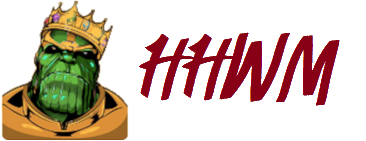How Cannabis Treats Childhood Epilepsy
New research has significantly strengthened the case for the use of whole-plant cannabis products to treat childhood epilepsy. Appearing in the BMJ, the new study found that kids’ seizures fell by an average of 86 percent once they began taking full-spectrum cannabis extracts and that these products significantly outperformed conventional epilepsy drugs and isolated CBD[i].
Why Whole-Plant Cannabis Works For Childhood Epilepsy
The study authors explain that the use of cannabis to treat childhood epilepsy goes all the way back to the 1800s but that a lack of large-scale clinical trials has prevented the adoption of whole-plant cannabis products as medicinal aids in more recent times. In the UK, where the study took place, doctors are hindered by the National Institute for Health and Clinical Excellence (NICE) guidelines, which advise against the use of full-spectrum cannabis for most conditions.
To date, a small number of randomised, placebo-controlled trials have indicated that isolated cannabidiol (CBD) may help to treat some rare forms of childhood epilepsy. However, many children fail to respond to CBD. Researchers believe that whole-plant cannabis – which contains CBD, THC and an array of other cannabinoids and terpenes – may be more effective at treating a wider range of epilepsies.
Pre-clinical studies have hinted at a possible anticonvulsive effect for several minor cannabinoids, including cannabidivarin (CBDV) and cannabigerol CBG. Likewise, THC has been shown to modulate glutamatergic excitatory activity in the brain, implying that cannabis may help to reduce seizures in epilepsy sufferers.
However, until this effect is proven, doctors in the UK are unlikely to be given the green light to prescribe whole-plant cannabis products to most children with epilepsy. Instead, many will be supplied with either conventional anti-seizure medications or CBD, even though these fail to work for many patients.
Epilepsy Seizures Treated Using Cannabis
The study authors recruited ten children between the ages of one and 13 years, all of whom had failed to respond to conventional epilepsy treatments before switching to full-spectrum medical cannabis. Only one of these kids received their treatment on the NHS, with the rest obtaining private prescriptions at an average cost of £874 a month.
Over six months, the researchers recorded the number of seizures experienced by each child while also receiving feedback from parents and caregivers regarding their overall health and quality of life. All patients experienced massive reductions in convulsions after initiating whole-plant cannabis treatment, with one child becoming completely seizure-free – despite having suffered 600 seizures per month before using cannabis.
Each child used a different cannabis product following the guidance of their prescribing physician. Daily doses of THC ranged from two milligrams to six milligrams, with CBD doses ranging from 75 to 360 milligrams per day.
In addition to this massive reduction in seizures, parents and caregivers all reported that their children’s overall health and wellbeing increased once they started using cannabis, with significant improvements in sleep, behaviour and cognition. While the authors accept that this is a small-scale observational study rather than a full placebo-controlled clinical trial, they urge NICE to take heed of their findings and encourage the use of whole-plant cannabis treatments for childhood epilepsy.
“We believe that our data on whole-plant medical cannabis in childhood-onset severe treatment-resistant epilepsy provides evidence to support its introduction into the NHS within current NICE prescribing guidelines,” they write.
“Such a move would be hugely beneficial to the families, who in addition to having the psychological distress of looking after their chronically ill children, have also to cover the crippling financial burden of their medication.”
[i] Zafar R, Schlag A, Phillips L, et al. Medical cannabis for severe treatment-resistant epilepsy in children: a case series of 10 patients. BMJ Paediatrics Open 2021 – https://bmjpaedsopen.bmj.com/lookup/doi/10.1136/bmjpo-2022-001234
Cultivation information, and media is given for those of our clients who live in countries where cannabis cultivation is decriminalised or legal, or to those that operate within a licensed model. We encourage all readers to be aware of their local laws and to ensure they do not break them.
Source link












